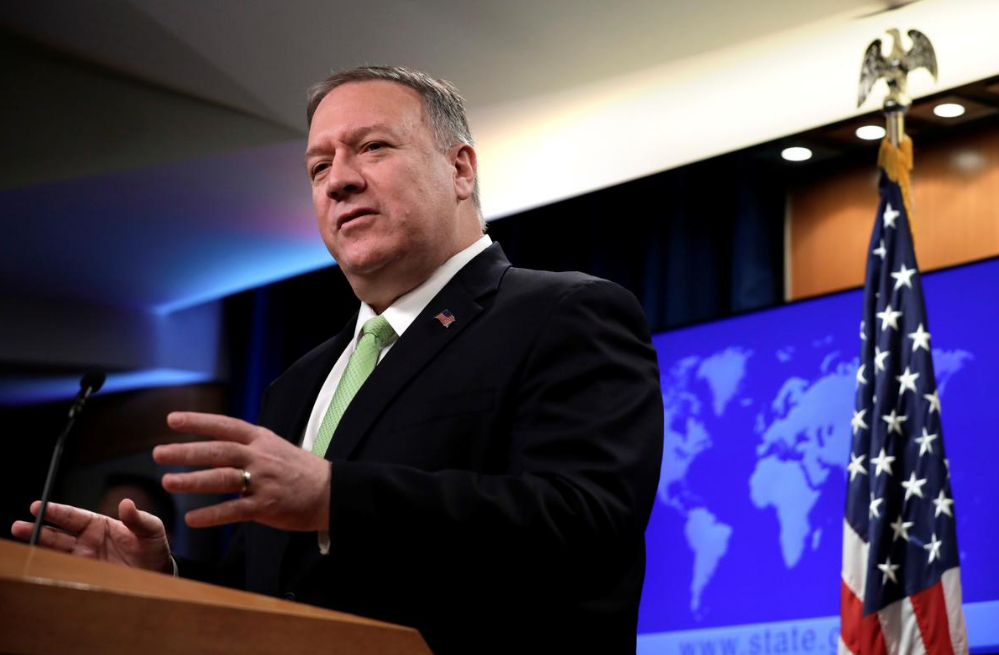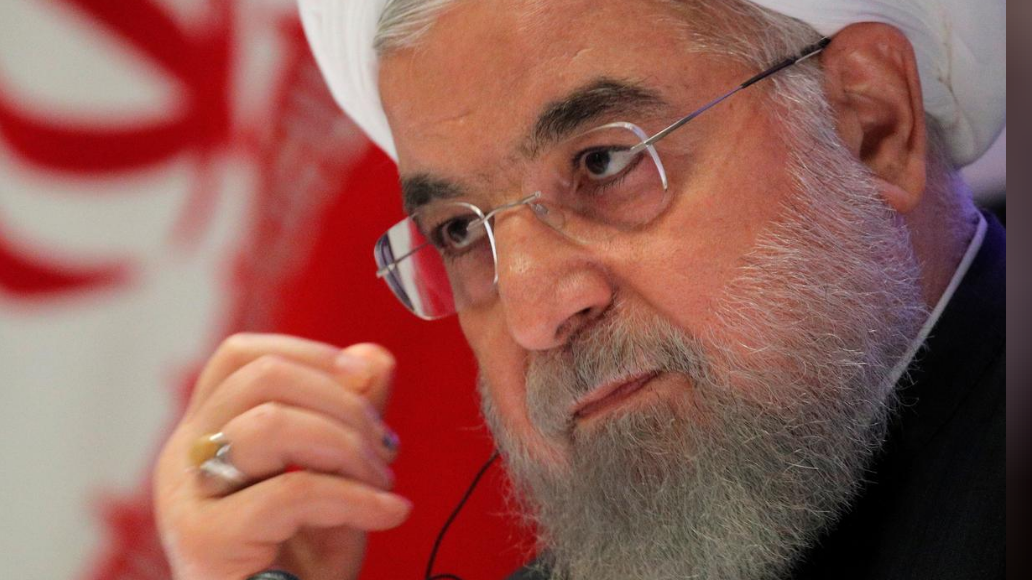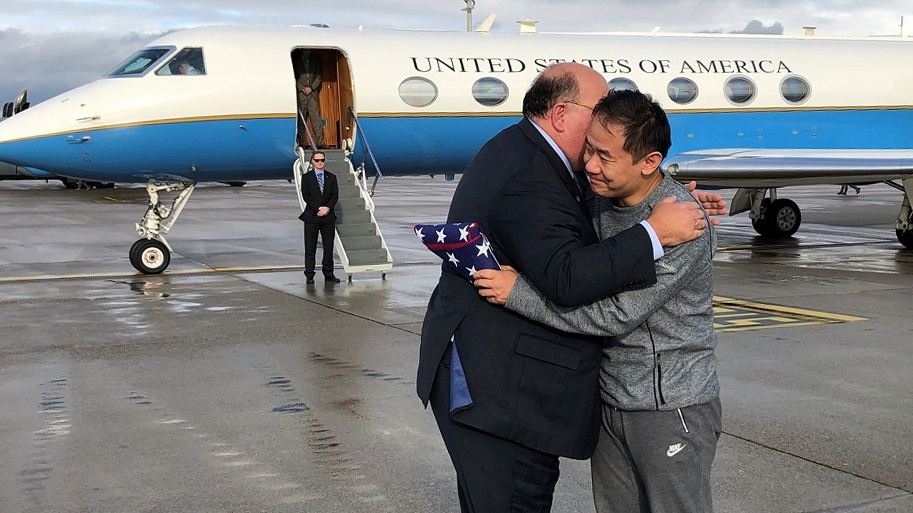The United States on Wednesday imposed new sanctions on Iran's biggest airline and its shipping network, accusing them of transporting lethal aid and weapons of mass destruction proliferation.
The new sanctions come just days after a weekend prisoner swap between the historic foes, a rare act of cooperation since tensions escalated after U.S. President Donald Trump withdrew from the 2015 Iran nuclear accord.
The U.S. State Department targeted Shanghai-based ESAIL Shipping Company, which U.S. Secretary of State Mike Pompeo said "knowingly transports illicit materials from Iran's Aerospace Industries Organization, which oversees all of Iran's missile industry" and has worked with Iranian organizations subject to UN sanctions.
The sanctions on ESAIL and additional sanctions on Islamic Republic of Iran Shipping Lines will take effect in June 2020.
Also blacklisted was an Iranian shipping network involved in smuggling lethal aid from Iran to Yemen on behalf of the Islamic Revolutionary Guards Corps (IRGC) and its unit, the Quds Force.

U.S. Secretary of State Mike Pompeo makes a statement to the press at the State Department in Washington, U.S., December 11, 2019. /Reuters Photo
U.S. Secretary of State Mike Pompeo makes a statement to the press at the State Department in Washington, U.S., December 11, 2019. /Reuters Photo
New sanctions were also imposed on Mahan Air and three of its general sales agents by the State Department and the U.S. Treasury Department over its alleged role in weapons of mass destruction proliferation, expanding on counterterrorism sanctions imposed in 2011 over support it provided to the IRGC forces, Pompeo said.
"These programs involved the siphoning of funds away from the oppressed Iranian people, and they augment the regime's campaign of terror and intimidation at home and throughout the world," Pompeo said.
In addition to the sanctions on the companies, Pompeo threatened additional sanctions on those who conduct illicit transactions with them.
Read More:
Sanctions and pressures: U.S. ditching Iran nuclear deal one year on
'Crocodile tears'
Iranian UN mission spokesman Alireza Miryousefi denounced the new sanctions, saying in a Twitter post that Iranians "are never fooled by the U.S.'s crocodile tears."
"These sanctions are directly targeting ordinary Iranians' livelihood, but they will not be cowed by pressures by any foreign power," Miryousefi said.

Iranian President Hassan Rouhani speaks at a news conference on the sidelines of the United Nations General Assembly in New York, U.S., September 26, 2019. /Reuters Photo
Iranian President Hassan Rouhani speaks at a news conference on the sidelines of the United Nations General Assembly in New York, U.S., September 26, 2019. /Reuters Photo
Rouhani: Iran will bypass U.S. sanctions or overcome them through talks
Iranian President Hassan Rouhani earlier on Wednesday said Iran will overcome U.S. sanctions by either bypassing them or through negotiations, and it will not cross its red lines in any talks with arch-adversary Washington.
Tensions have soared between Tehran and Washington since last year, when President Donald Trump pulled the United States out of Iran's 2015 nuclear deal with six powers and reimposed sanctions on Tehran that have crippled its oil-based economy.
The Islamic Republic has rejected negotiating a new deal with the Trump administration, saying talks are only possible if Washington returns to the nuclear pact and lifts sanctions.
"The government is determined to defeat (the enemy) by bypassing America's sanctions...or through various means including talks, but we will not cross our red lines," the semi-official Iranian news agency ISNA quoted Rouhani as saying.

U.S. Ambassador to Switzerland Edward T. McMullen, Jr. welcomes Xiyue Wang on arrival in Switzerland after his release from Iran on December 7, 2019. /Photo via U.S. government website
U.S. Ambassador to Switzerland Edward T. McMullen, Jr. welcomes Xiyue Wang on arrival in Switzerland after his release from Iran on December 7, 2019. /Photo via U.S. government website
Rare act of cooperation
In a rare act of cooperation between Tehran and Washington, the United States and Iran each freed a prisoner on Saturday.
Washington said it was hopeful that the prisoner swap would lead to the release of other Americans held in Iran and that it was a sign Tehran was willing to discuss other issues.
Iran released Xiyue Wang, a U.S. citizen who had been held for three years on spying charges, while the United States freed Iranian Massoud Soleimani, who had faced charges of violating U.S. sanctions against Tehran.
Iran said on Monday there were about 20 Iranians jailed in the United States in cases linked to sanctions violations.
Despite the latest round of sanctions, Pompeo said he hoped that the prisoner exchange on Saturday might lead to the release of other Americans held in Iran, though he cautioned against false optimism.
"I do hope that the exchange that took place will lead to a broader discussion on consular affairs. We still have Americans held in Iran, too many for sure. We are working to try and develop that, to expand that, to use this as an opportunity to continue that effort," he said.
(With input from Reuters)